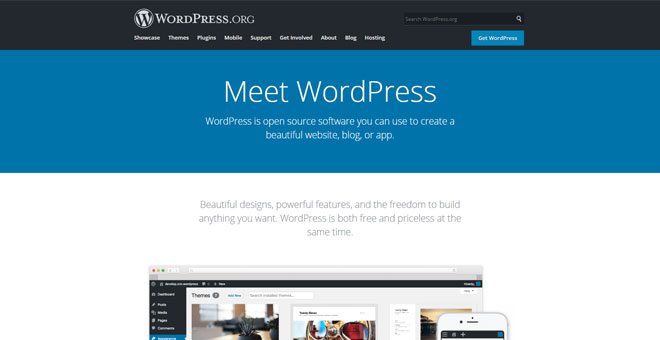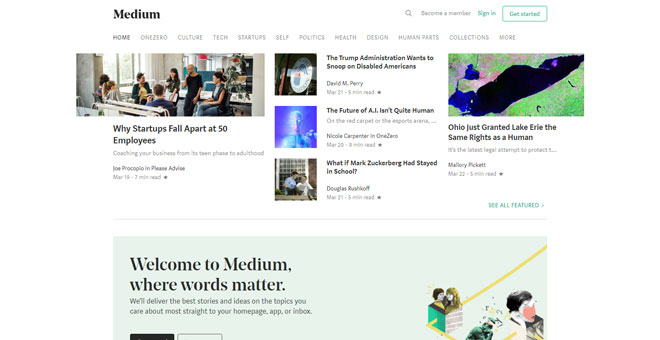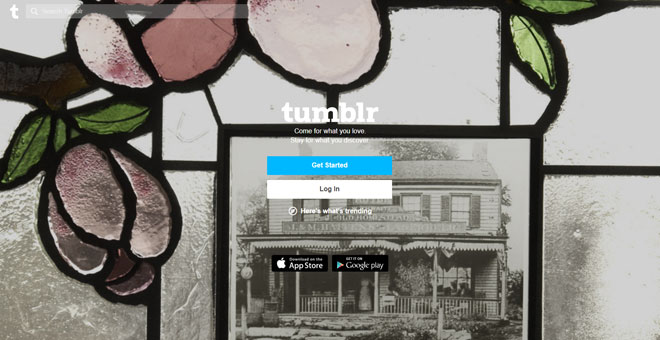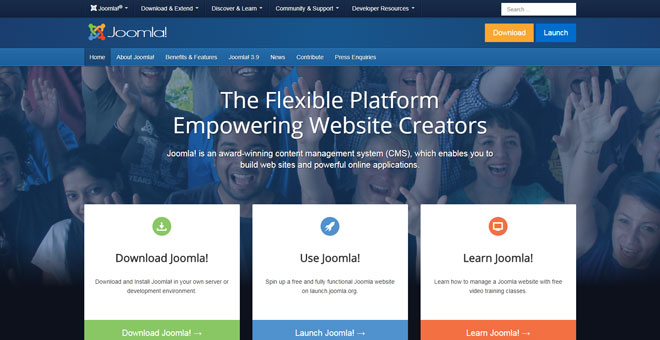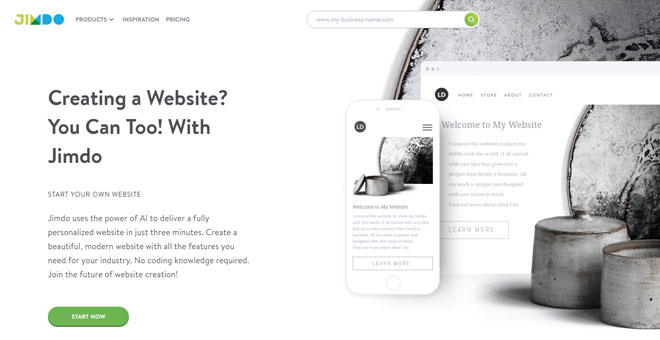How to Start a Blog?
Reading a blog post looks easier and it is just like reading a compelling story from a book. But do you know what bloggers undergo to come up with such captivating stories? Do you ever wish to start your own blog? How do you start in the first place? And what are you going to write about?
To answer each of these questions, it is important to have background information regarding blogs and what it takes for bloggers to come up with interesting blog posts that entice their target audiences.
In this article, we are going to guide you accordingly on how to start a blog, tell you a little bit about the benefits of having your own blog, how to choose a blogging platform, your niche and how to set up your WordPress Blog in just a few simple steps. Let’s get started.
Benefits of Having a Blog

Blogging is not just a matter of writing stories on specific topics to make people happy. As a blogger, it is prudent that you understand the value of your work and how it can be of great benefit to you. You should know the purpose of spending much of your time researching and coming up with a good blog post. Also, you need to be fully aware of the benefits that come with hosting your own blog on your business website. Now, without taking much of your time, here are the benefits of having a blog:
1. A Blog enhances Search Engine Traffic
Just like fishing, so is blogging when it comes to search engine rankings. In simple terms, the more content you upload to your website, the more web pages on your domain gets indexed in search engines. As such, the indexing of your web pages improves organic search visibility thereby increasing website traffic. In other words, the number of your blog posts will determine your ranking for various keywords.
2. A Blog Humanizes Your Brand
Blogging enables you to touch on key issues and concerns of great interest regarding your prospects. At the same time, it helps you share what you are passionate about. In essence, your blog posts provide you with a rare and unique chance to share your personality and voice build up trust and increase the likeability quotient of your brand.
3. A Blog enhances your Social Media Activities
It is becoming increasingly difficult to stay active and relevant on social media unless you can access high-quality and unique content. While sharing your friends’ content on social media sounds like a great idea, at some point you might want to direct those leads to your web pages. Therefore, every time you share your blog posts on social media, it is likely that you are increasing traffic to your site.
4. A Blog helps you build Some Authority to Your Brand
Blogging is one of the ways to make your brand grow. Every time you add a blog post to your website, you are simply creating a better platform for sharing your important industry-related information as well as insights. In this case, it can be said that you are building up authority within your specific niche thus bringing some element of familiarity, trust, making your prospects available to others and improving conversion rates.
5. A Blog Increases Conversion Rates
When your blog is active, you are simply telling your audience that your business is doing well. However, to make your blog even better, you will need to post regularly paying particular attention to the quality of your content as a way of building loyalty and improving your conversion rates.
6. A Blog Helps in the Generation of Inbound Links
One of the three pillars of search engine optimization (SEO) is to have high-quality inbound links to the website. Without a blog, you may experience some difficulties in attracting authoritative links to your site. But the addition of new content creates a resourceful platform for other bloggers, leading to the accumulation of inbound links when other bloggers, journalists, columnists and contributors cite and use your work as a reference in their articles. Ultimately these links will generate referral traffic in addition to being important tools for SEO.
7. A Blog helps your Ranking for Long-tail Search Queries
If your website is lacking a blog, then it is extremely difficult to rank for the long-tail search queries. In other words, a typical site can successfully rank for specific keywords in relation to your business, but the best way to rank for the long-tail queries is to have more content with higher converting keyword phrases.
8. A Good Blog Increases Leads
According to researchers, the more pages your website has, the more it increases leads. For instance, 401-1000 pages of high-quality content are likely to get more leads compared to those with less number of pages. In the real sense, more content translates to more form transmissions, more quote requests, more email opt-ins and eventually, more sales.
9. A Blog Facilitates Constructive and Valuable Discussion
Your blog will give your business an opportunity to connect well with prospects and customers via a two-way conversion. As a matter of fact, your blog signals to visitors that you are ready for feedback, criticisms and open to comments. Through this dialogue, you can learn and share vital information with like-minded people.
10. Having a Blog will give you a Better Chance to achieve “freshness”
As far as blogging entails, achieving a freshness factor is very important. This means that Google is always ready to receive fresh content all the time in order to reward your site with better visibility. In addition to that, fresh content is likely to have a better exposure which is actually a factor for any trending searches.
Choosing a Blogging Platform
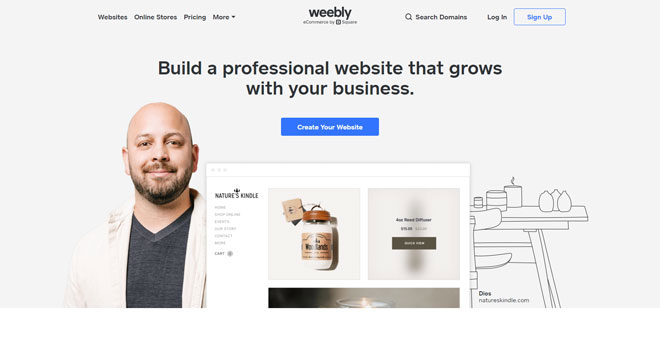
Choosing the right blogging platform could be a frustrating affair given that there are numerous platforms out there to choose from. But when you land a good blogging platform, you can rest assured that you will have a smooth sail in blogging as long as your content is top-notch. As a beginner, you may find yourself entangled in between popular blogging platforms such as WordPress.org, Wix, WordPress.com, Blogger, Tumblr, Medium, Ghost, Joomla, Weebly, Squarespace and so on. In the end, you will, of course, settle for one but a million-dollar question is, “which one?”
To get started on your search for the ideal blogging platform, there are factors to consider. Given that you are a newcomer in the game, a perfect blogging platform should be one that is easy to set up and use, does not need any coding skills and has a lower learning curve.
Once you have these factors at the back of your mind, the next thing to ponder about is the type of blog you are looking forward to create. As you gain more and more experience, you should also consider changing the entire outlook of your website through the addition of more features to meet the needs of your audience.
As such, you might think of a blogging platform that is flexible and able to help you grow as you advance in blogging. That is why starting off with a wrong blogging platform could be a hindrance to your future expansion.
Last but not least, there is an aspect of money blogging which you should as well consider in the future after gaining enough experience in the field. Now that you have all these factors right at your fingertips, the next question should be, “which platform foots the bill?”
WordPress.org

The best blogging platform for beginners at the moment is WordPress. But why is the case? Apparently, WordPress powers more than 30 percent of all sites on the internet. No wonder it is the most popular blogging platform in the world today.
At this point, you need to know the existence of both WordPress.org and WordPress.com, the two blog hosting services that are always confused by many people. For WordPress.org, what you need to know is that it is a free blogging platform that lets you create your site or blog in a matter of minutes.
On the other hand, WordPress.com provides basic blog hosting services for absolutely free. But you are required to buy additional options such as additional storage, custom domain name and other premium services. Generally, WordPress hosting gives you a great option if at all you want to control the future of your blog.
Finding a Niche for Your Blog

The hardest part of starting a blog is finding the right niche. This way you will be able to capture the full attention of your audience and increase internet traffic to your site for better ranking. That is the main reason niche blogs are increasingly becoming popular each day. Therefore, you need to take a while to come up with a niche that will entice your target audience as well as creating more leads to your business or site.
When deciding which niche to write about, you need to ask yourself the following questions and find their answers:
- What is your passion?
- How do you find your passion?
- How unique should your content be within that particular niche?
- Where do you find your niche?
- How do you dominate your niche?
- How do you ensure that you are part of a network in relation to your niche?
After finding the right answers to the questions above, you will be in a better position to decide which area to write about. Remember that whatever niche you choose, there are millions of content out there that fall in line with your niche. As a result, it is important that you make your content as engaging as you possibly can.
How to Setup a WordPress Blog
By now you should be aware that WordPress is a better solution for anyone looking to start a blog. While the thought of setting up your blog might sound impossible, surprisingly it is simple to create your own WordPress blog. And it can take you a record 15 minutes if you know the right steps to follow. Here are the steps:
1. Hosting and Domain
The first thing you need to do when starting your own blog is to find a better hosting and registering your domain name. In this case, the best web hosting should be HostGator.
Why choose HostGator as your web hosting?
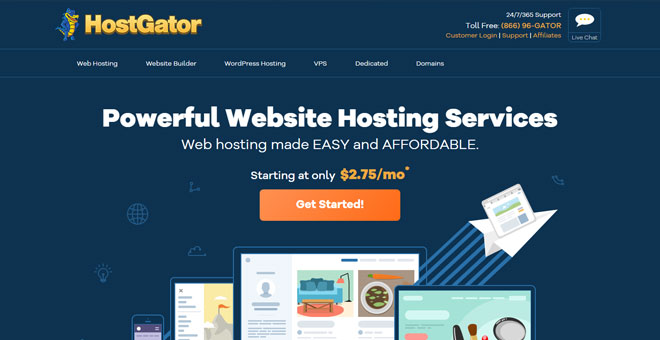
Well, this web hosting provider is the best option for those venturing into blogging for the first time and here are the reasons why you should consider it:
- HostGator web hosting comes with a wide range of tools to take your blogging idea to the next level. These include building tools, templates, 1-click application installer and 24/7 customer support
- It hosts WordPress, one of the best and widely used website building platform today
- HostGator is reputed for being among the top-ten largest web hosting service providers with over 8 million hosted domains
- It has the best web hosting features such as easy-to-use-control panel, unmetered bandwidth, unlimited subdomains, 99.9percent uptime guarantee and SSL certification among others
- It comes free of charge with every hosting plan
Domain Name
The domain name for your blog is equally important because it gives the first impression of your blog. Actually, your domain is your URL, your address on the website or the name of your blog. So, you need to choose a domain name that will make your blog stand out from the rest. That is why you need to have HostGator as your web hosting provider so you may enjoy the great benefits that come with it.
2. Install WordPress to your Domain
To install WordPress to your domain, you will need the following steps:
- Start by downloading and unzipping the WordPress package
- Create a WordPress database on your website server
- Although it is optional, you may find and rename the wp-config-sample.php to become wp-config.php before editing the file and adding your database information
- Upload WordPress files to your desired location on the web server
- Run your WordPress installation script by simply accessing your URL or domain in a web browser
3. Write Content
Writing the content for your blog is the most interesting part after struggling with all other steps. Your content is what will determine the internet traffic flow to your website. Therefore, ensure that it is compelling and captivating to your audience and anyone else who might come across it on the internet.
4. Market Your Content
The best way to ensure that your blog generates good internet traffic is through marketing your content on social media using SEO. With the availability of many social media platforms today, you can easily reach out to many people within the shortest time possible if you follow the right channels. Some of the social media platforms that you should use to market your content include Facebook, Twitter, Instagram, LinkedIn, WhatsApp and many more.
Final Thought
Starting your blog should not give you sleepless nights now that everything has been made easier for you. What you need is the right web hosting provider, the best software, your domain and necessary steps to set up your blog and you are good to go.



